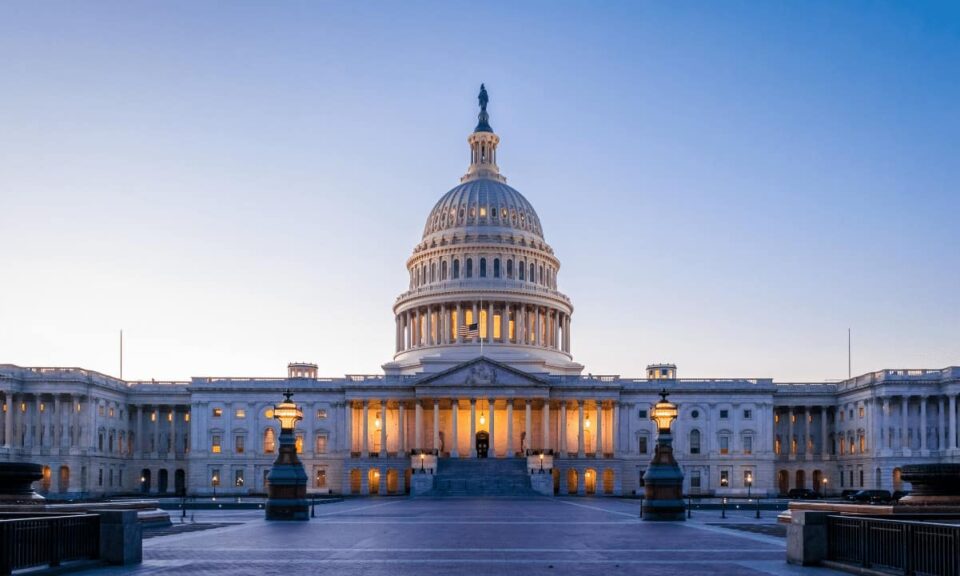The cryptocurrency market and its prices constantly evolve, with volatility and market sentiment changing rapidly. The impact of external factors, particularly government operations, is a subject of curiosity and concern.
The unrealized loss in the U.S. banking system amounts to a staggering -$1.8 trillion, with a capital of only $2.2 trillion. While corporate taxes are due on Sept. 15, and there is a possibility of a government shutdown on Oct. 2, the average person is unaware that some banks are already in insolvency, heading toward a distressing liquidity crisis in October.
What Is a Gvmt Shutdown, How Can it Affect the Economy?
The Antideficiency Act, first introduced in 1884 and later revised in 1950, allows federal agencies to use money if approved by Congress. When Congress doesn’t pass the 12 yearly appropriation bills, federal agencies must stop non-essential tasks until it acts, leading to a government shutdown.
In cases where Congress approves only some of the bills, agencies without funding must shut down, referred to as a partial shutdown.
What Happens in a Shutdown?
When shutdowns occur, many federal workers are instructed not to come to their jobs. However, essential services like air traffic control and law enforcement continue functioning, even though those employees will receive pay once Congress resolves the situation. It’s important to note that these circumstances pertain only to about 25% of federal spending that Congress approves annually.
Certain benefits, such as Social Security and Medicare, remain unaffected as they’re authorized through laws that don’t necessitate yearly approval. However, some services provided by Social Security offices might be limited during a shutdown. The Treasury Department can also uphold timely interest payments on U.S. Treasury debt.
Shutdowns can cause disruptions, leading to delays in handling passport applications, small business loans, and government benefits. National parks might see visitor centers and bathrooms closed, food-safety inspections reduced, and various inconveniences arise.
US Congress. Source: Yahoo
Implications of a Gvmt Shutdown on the Crypto Market
The implications of a government shutdown on the crypto market are multifaceted and can have far-reaching consequences beyond just the digital asset realm.
The events during the United States government shutdown of 2018-2019 vividly illustrate how interconnected and sensitive the crypto market is to shifts in regulatory environments and government actions. Here are some of the implications:
Reduced Liquidity
A government shutdown can significantly impact the crypto market, reducing liquidity and a challenging trading environment. Reduced liquidity could make it more difficult for investors to buy or sell digital assets without affecting their price. That can result in increased volatility and potentially higher transaction costs. For instance, if many investors decide to sell their cryptocurrencies during reduced liquidity, the price could plummet rapidly.
Furthermore, the decentralized nature of cryptocurrencies may amplify the impact of reduced liquidity. Unlike traditional financial markets, where central bodies can provide liquidity during periods of instability, such mechanisms do not exist in the crypto market. That, coupled with cryptocurrencies’ inherently volatile and speculative nature, can lead to heightened investor risks during reduced liquidity.
Nevertheless, reduced liquidity only sometimes equates to adverse outcomes in the crypto market. For some investors, this may present unique opportunities. The potential for large price swings can offer substantial returns for those prepared to take on the increased risk. Again, investors must understand their risk tolerance and investment objectives before deciding on reduced liquidity periods.
Limited Access to Information
A government shutdown can significantly impact the crypto market, affecting various aspects of informed decision-making. Cryptocurrencies operate on an open-source model, where, ideally, all investors have access to the same information. This level playing field is a cornerstone of the market’s philosophy.
However, market dynamics can shift considerably when information becomes scarce or inaccessible. Investors who rely on timely and accurate information for their trading strategies might find themselves at a disadvantage. If crucial data about market trends or upcoming changes is not readily accessible, investors may make decisions based on incomplete information, leading to potential losses.
Moreover, the decentralized nature of cryptocurrencies can exacerbate the effects of limited information. Unlike traditional financial markets, there are no regulatory bodies to ensure the transparency and availability of information. Therefore, investors are left to seek out and interpret market information.
Potential for Speculation
Government shutdowns can increase the potential for speculation in the crypto market due to factors such as lack of oversight and market manipulation. Cryptocurrencies, with their inherent volatility and the sometimes opaque nature of their markets, are ripe for speculation.
Speculative trading involves making calculated bets on the future price movements of an asset, often within a short timeframe.



